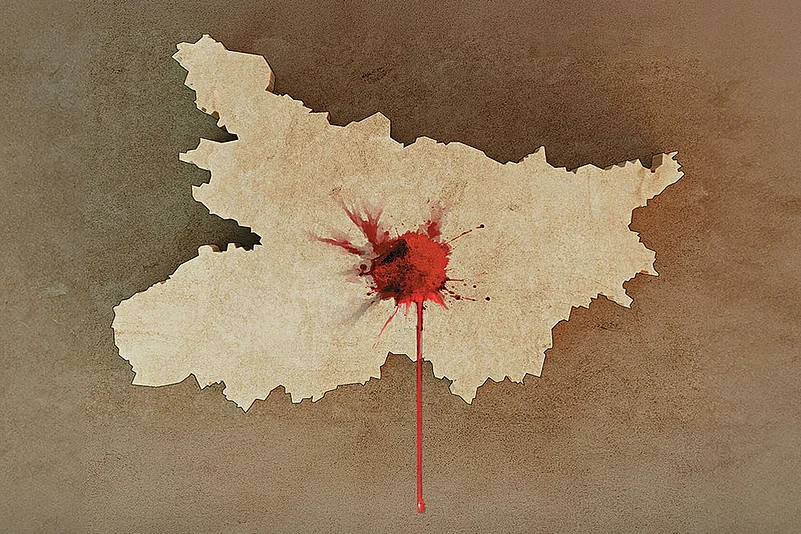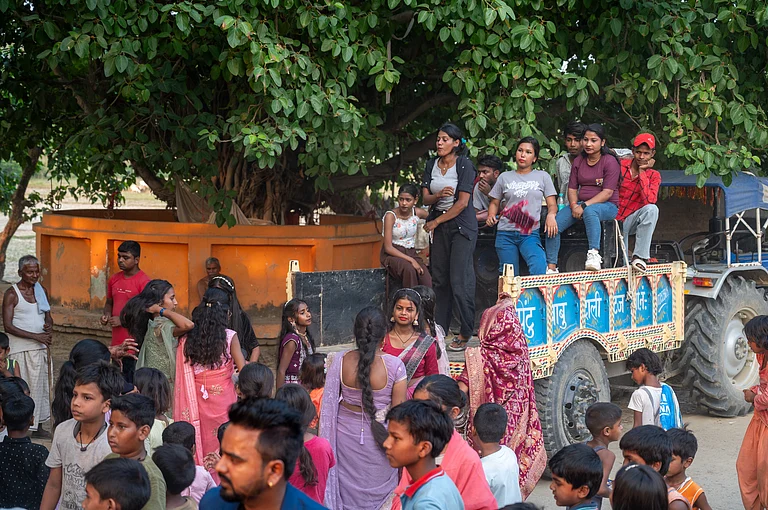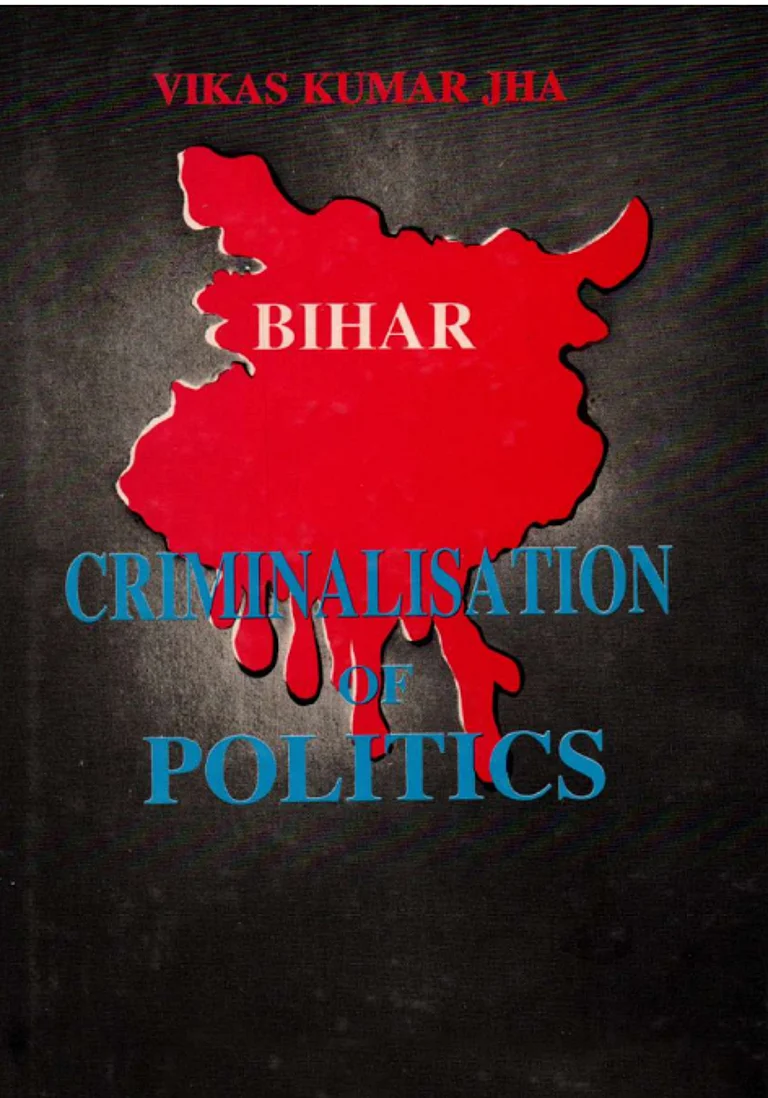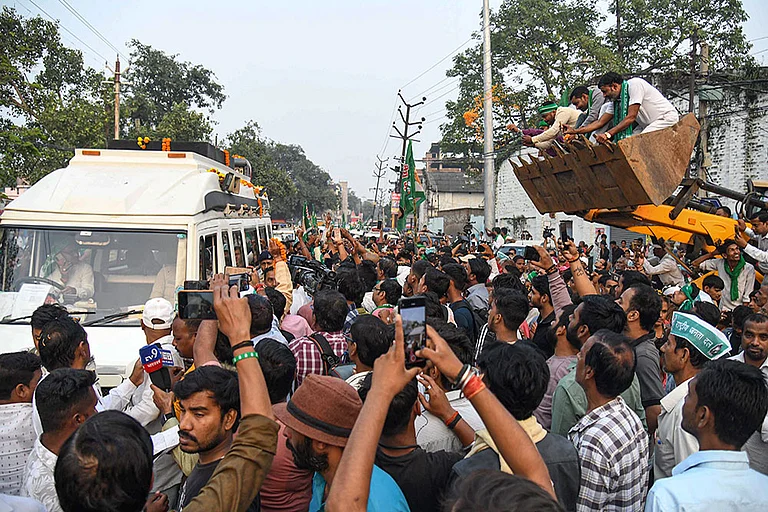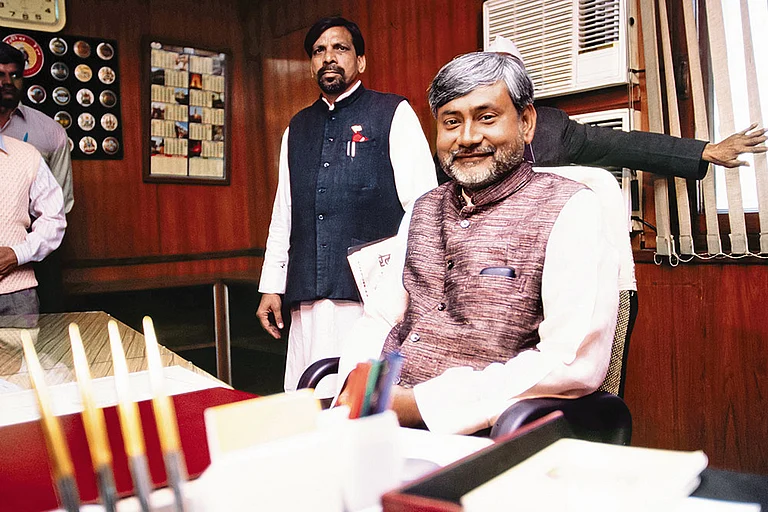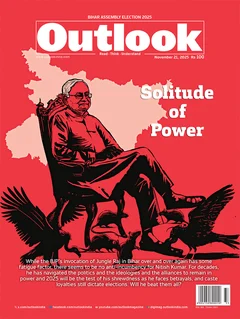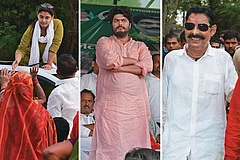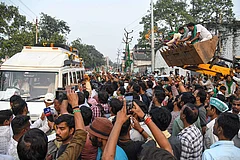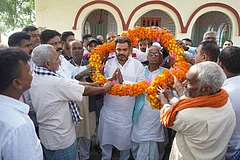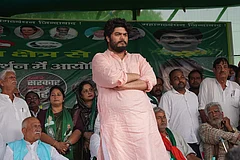
Srikant is a journalist and modern playwright from Bihar, known for his play I am Bihar.
The play I am Bihar delves into the challenges of governance, issues of corruption and crime.
The play focuses mainly on the period referred to as ‘Jungle Raj’ in the state’s history.
Main Bihar Hoon (I am Bihar) is a dramatic adaptation based on Srikant’s political articles and stories. A stark commentary on Bihar’s social and political realities, the play focuses mainly on the period referred to as ‘Jungle Raj’ in the state’s history. It delves into the challenges of governance, issues of corruption and crime, providing a closely observed perspective on life in Bihar as seen through a journalist’s eyes. The play recollects crucial moments in Bihar’s history and voices the anguish and aspirations of its people. An excerpt:
I am Bihar. My life’s thread is attached with Delhi. Along with Delhi, I too was born. The British rule made two decisions. Delhi became the capital of modern India and I too got a new form. I am Bihar. Gautam Buddha’s Bihar. Mahavir’s workplace. Ashok and Chandragupta are my children. Vaishali Republic is my past. Bihar with a new democratic set-up. My present. I too got a new identity along with Delhi, however, like Delhi, my identity is not static.
I am Bihar. Along with fields and lands of the plain areas my identity has been made from the coal and copper mines. I was seen by Xuanzang, Megasthenese and Buchanan. They saw my progress and helplessness. The ruins of Nalanda and Vikramshila are witness to these. Ganga of knowledge, the politics, that diplomacy starts with my own Chanakya; the reform movement of Arya Samaj is associated with me; the arrival of Gandhi and his Champaran Satyagraha. I was the one who gave Gandhi his new identity. I inspired Baba Ram Udaar to give the slogan, “Don’t run away but change the world”. Before the second independence of JP, I also became the base area of Swami Sahjanand, Triveni Sangh and Lohia. The underground life led by Vinod Mishra. Youth looking for a ground for movement. Crumbling fortresses and monasteries.
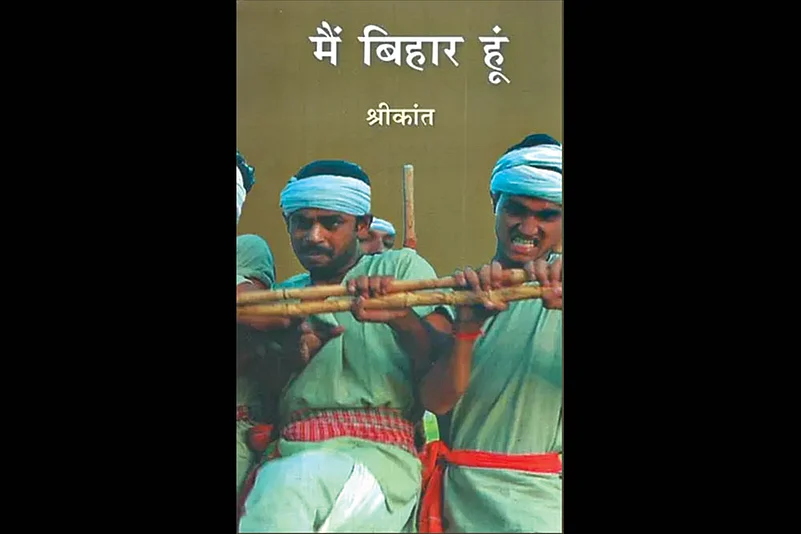
I am Bihar. I don’t talk about revolt. Still, the first Urdu Newspaper ‘Murg-e-Bihar’, wrote ‘Bihar for Biharis’. I also like to breathe in free air. I have reduced from 10 crores to eight crores. I am a Bihar of 16 crores pairs of eyes and hands. More than half of the people do not have land. However, the bungalows that own land rule over the villages. The land is being guarded. Monsters have pointed guns at the agricultural lands.
I am Bihar. My past and present—two directions of life, rising and falling, between the currents of rivers. Whatever was, is not anymore. Settlement officer Stevenson Moore had said, “Bihari labourers are supremely satisfied”. He did not term them revolutionaries. But people became revolutionaries. Two crore children born naked from the pigs’ nests on a dark rainy night. New directors. Some Chandragupta, some Lalu. Spending nights with their mothers on rainy days with pitter patter rain drops. Waiting for nights to end. Is there someone; who can watch my children, my daughters. No. Many things have happened. Have you seen children killing mouse in the fields. Do you know how to take out mouse from its burrow by pouring in water. This is today’s dose. Don’t know what our economy data tells about hunger. But remember Nagarjuna, “Please count, count…how many bones are there in the skeleton.”
I am Bihar. The sun rises daily. The sun sets daily; but the sun is not coming out here. When did morning come? Has the sun risen there. There, where human and humanity do not exist. This is Raj Bhawan. That is Anne Marg. This is Minister ji’s house. He is officer ‘sahib’-sir. ‘Fair are here, and black here’. Children of Aryans and non-Aryans. Ask the feminists and the truth will be different. It feels good then to turn away from the truth. It feels right to live in dreams. To live in dreams while walking on Raj Marg. Remember my father, who was killed by terrorists’ bullets had said—the most dangerous thing is that death filled with silence, not existing, bearing everything with pain, to leave the house for work and coming back after work, the most dangerous being our dreams getting dead.
I am Bihar. In the villages, the rice harvest has reached the farmers’ homes, but the market lies far away; farmers’ country. My geography has also changed with the rivers’ course, but history has not changed. Indigenous rice varieties sit idle, while only imported goods fill the markets. The warehouses overflow with farmers’ grain. Delhi does not listen to the farmers. The government sways to the ‘high-tech warnings’ of the stock market. What can I do? My grain sells for three rupees a ser. Cheap. Buy it for almost nothing and sell it at market rates. With a population of eighty crores, we keep looking toward Delhi, while the patriots ignore the distant villages. They boast—water for every field, work for every hand. Yet crores in this country have lost their livelihoods.
I am Bihar. A true Bihar covered in the dust of its villages. The scent of farmers’ movements is present in my soil. Have you heard the echoes of farmers and their struggles? The left are also many and South has many more. Multifaceted people have become leaders. And the socialists—don’t even ask about them. Yadav brand, pure Yadav brand, Kurmi-Koeri brand, Bhumihar brand, Kshatriya brand; flags of every kind. Linked to these brands are the former rulers and the Leninist-Marxists. These are the real ones, those are fake ones. Some carry weapons, others do not. Some rule the hills, others rule the plains. Some contest elections and get labelled reformists. They break and rebuild castes, temples and mosques.
I am Bihar. I am sold a lot; in newspapers, on radio, on television, and now in the age of the internet. News has grown wings. Publishers in London love me, and so do the locals. Once, an Englishman named Mr. Halton served as Chief Secretary. He wrote a book titled ‘Bihar: The Heart of India’. But today, no one sees me through his eyes. Today’s so-called writers would describe me in such a way that you could hardly bear to read it. Their message would be: if there is a hell anywhere, it is Bihar. These pen-pushers have no idea how eight crore people survive here. Has their writing increased our harvests? Has it strengthened the spirit of enterprise among Biharis? How do four crore people stay alive after eating just one meal a day? If you really want to see Bihar, look at the Tatma Toli in Gaya district, where IAS officers, engineers, and IT professionals emerge. See Silicon Valley in IIT and all. Look at the Bihari labourers who send two thousand crore rupees home every year. I sell when I win, and even when I lose, the market remains just as eager for me; the craze remains the same.
I am Bihar.
Once, I was Vihar, then I became Bihar.
Now, it feels like only Haar (defeat) remains.
There may be nothing in a name, but there is a lot in my name.
The word haar in my name means something.
It could be a garland of flowers—or the feeling of defeat.
So, have I been defeated?
Or have all Biharis lost?
Srikant is a Journalist and author who was born in Nawada, Bihar. He is the author of several books, including Elections in Bihar: Caste, Violence and Booth Looting, and Bihar: Some Dimensions of Social Change (with Prasanna Kumar Chaudhary)
This story appeared in print as 'I Am Bihar' in Outlook’s November 21 issue Solitude Of Power, in which we trace Bihar’s enduring political grammar, where caste equations remain constant, alliances shift like sand, and one man’s survival instinct continues to shape the state’s destiny.
MORE FROM THIS ISSUE
(Translation credits: Kaveri Mishra)







